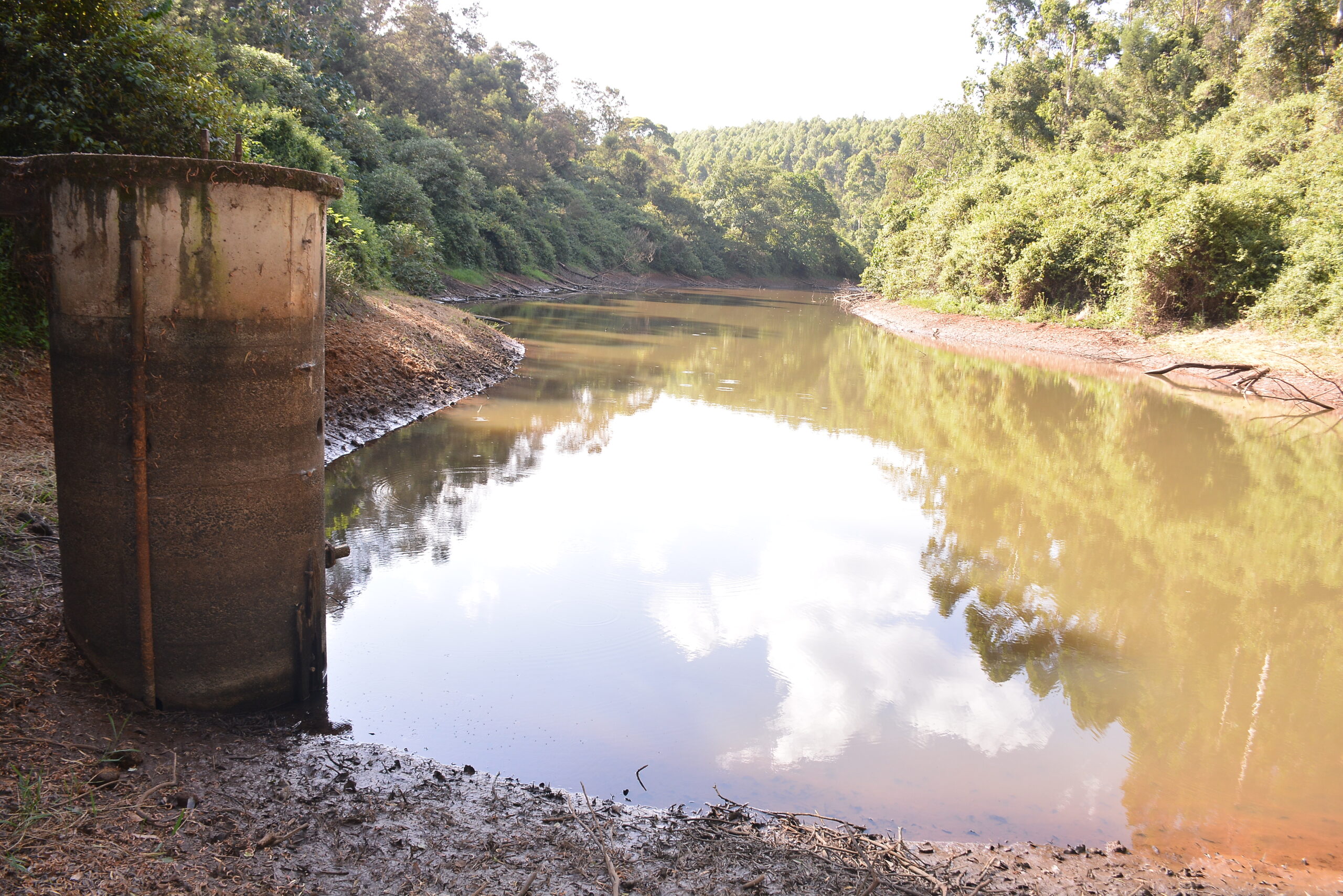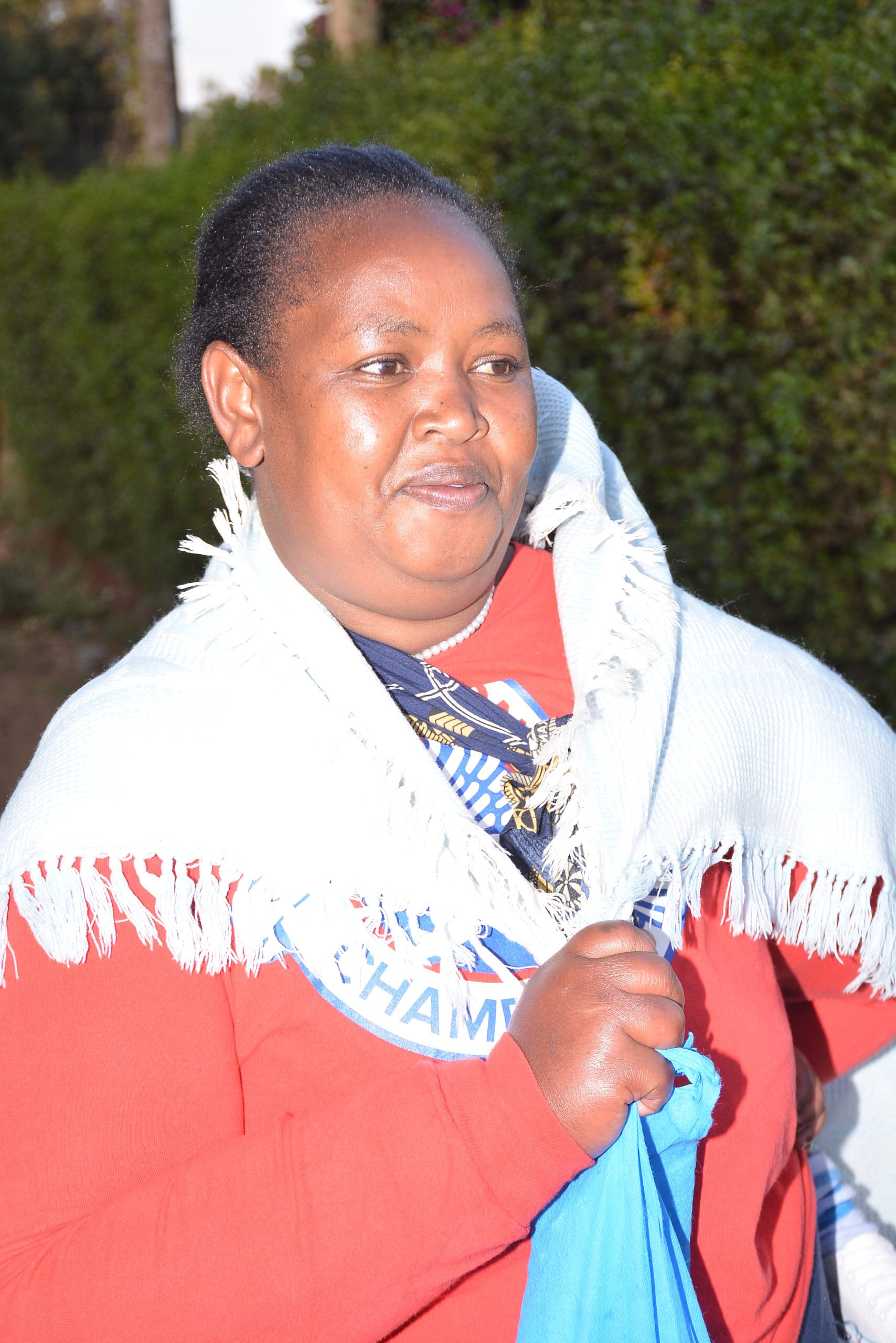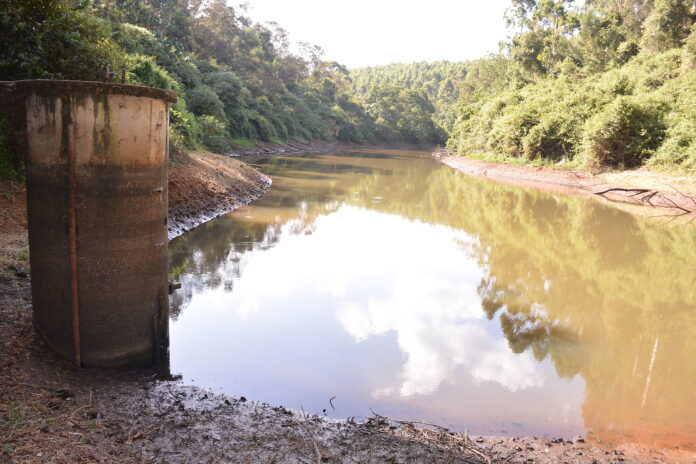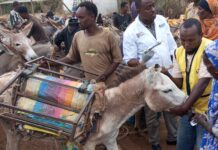By Lenah Bosibori
Kiambu County, Kenya: For many years Joyce Mawathe used to walk five to ten kilometers looking for water, she never knew that one day this precious resource could be at her doorstep.
Mawathe a mother of three from Roromo village Bibirioni ward Kiambu County is a smiling woman who used all her time looking for water, since the Bibirioni water project was built in the area she is now a happy small-scale farmer.
Access to clean and safe water was a dream to the villagers, until when Plan International came to their rescue by drilling a borehole, a process that involves drilling deep into the earth to access underground water sources.
About 90 percent of the county’s water resources consist of both surface and groundwater. Domestic water supply has recorded a noticeable growth over the last 5 years; 35 percent of the population has access to potable water. Water Resources – Kiambu County Government.
Borehole water projects have become increasingly popular in recent years, particularly in rural areas, as they provide a reliable and sustainable source of water. In the past, the villagers around Bibirioni ward had problems since there was no river or dam around the area. The project has enabled Mawathe to plant different types of crops to help her family.
“I am doing small-scale farming to help my family during this dry season,” said Mawathe during a visit to the project.
The Bibirioni water project was started in 2002 by Plan International which helped the villagers acquire a plot that the organization later drilled into a borehole that has so far transformed the lives of the village.

From the first borehole, they have managed to build three more that are now serving 30,000 people in Bibirioni ward including 8 public schools and five private schools.
To ensure that everybody benefited from the project, they opened 10 (kiosks) small shops that served as water points for people without legal connections.
“Right now we have more than 4,000 individual connections, the whole ward of Bibirioni has water, you cannot walk more than 10 meters without getting water, we have served the whole community, ” said Michael Karanja, senior chief of Bibirioni ward Kiambu County. Management of the project
Karanja says that they formed three committees consisting of the executive, management, and small committees;
The small committees are made up of people from every village that conveys messages discussed by management to every member of the project. The small committees help in tracking down defaulters to make sure they have paid their bills and help in tracking those doing illegal connections.
“This has worked very well, since 2002 when we opened the first tap of water in this area up to now, we have not experienced a big problem,” adds Karanja.
Public-Private Partnerships
By partnering with the government, the project has been able to reap hugely; this by ensuring that the water is not contaminated and by providing technical experts to look after major challenges.
“When we have a technical issue the government sends its technical experts to make sure that everything is working,” adds Karanja.
Karanja adds that this project has succeeded for over 15 years because it is owned by the community.
The project has not succeeded without challenges; electricity to pump the water has been the most challenging.
“Pumping the water is very costly, every month we pay up to 1 million shillings, almost half of what we collect from the project,” adds Karanja.

Another challenge according to Karanja is the lack of water reservoirs, “People here don’t harvest water because they know that it is always in their taps,” adds Karanja.
“If electricity fails, within three hours all the water pipes become dry,” adds Karanja.
Karanja reiterates that they don’t entertain politicians but welcome them to help where they can.
Through the earnings of the project, the management has invested in other projects like the 6-story building which helps in supplementing extra costs when times of disasters.
“Bibirioni project came to rescue the people of this area and improve their living standard. If you come on Sunday you will see healthy women who rely on their small business,” adds Karanja.
The project has benefited local schools by connecting eight public schools and five private schools at a discounted rate of 20 percent.
“We encourage many of these projects because government alone cannot supply to everybody, currently we are experiencing a drought ad if it continues for the next one month we will be forced to start water rationing to our clients,” adds Margaret Maina Executive Director Limuru Water and Sewerage Company.
She reiterates that the biggest challenge is getting back the 15 percent of illegal connections. “Water will be the next war because it is getting scarce and everybody is looking for it,” She said.
The project has embraced technology that is used for billing its customers via a small text message. “We send water bills via the system and we can track who is defaulting,” added Clement Wainaina the finance manager of the Bibirioni water project.
The project saved women and girls who are the most affected when there is a water shortage, “We now have healthy women doing small projects around here making their small income,” Says Karanja.














